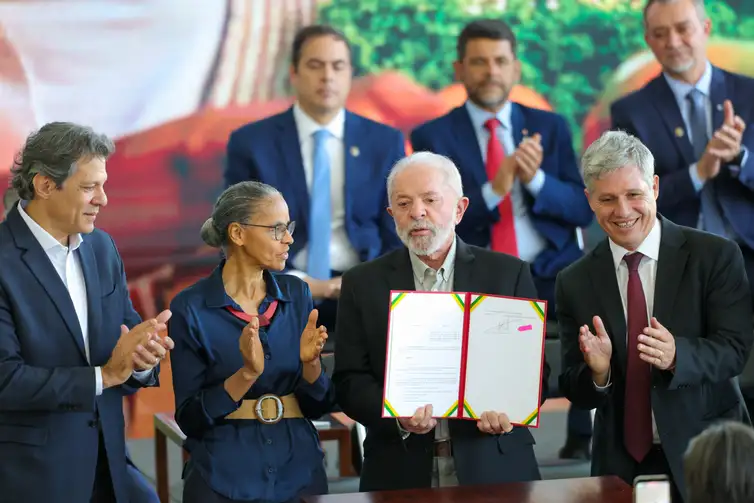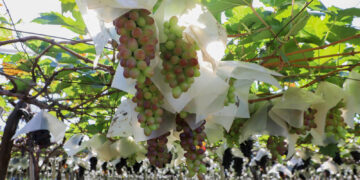On Monday (Jun. 30), President Luiz Inácio Lula da Silva launched the 2025/2026 Family Farming Harvest Plan, allocating BRL 89 billion for rural credit through the National Program for Strengthening Family Farming (Pronaf) and other policies such as public procurement, agricultural insurance, technical assistance, and minimum price guarantees. This amount is a record for the sector, surpassing the BRL 76 billion allocated in 2024.![]()
![]()
Of the total for the harvest, BRL 78.2 billion is allocated to Pronaf, which this year celebrates 30 years of recognizing family farming’s role in the country’s development. The interest rate remains at 3 percent to finance the production of food such as rice, beans, cassava, fruits, vegetables, eggs, and milk—dropping to 2 percent for organic or agroecological crops.
At a ceremony at the Planalto presidential palace, Lula praised the program’s growth and the preservation of low interest rates.
“It is important to remember that an interest rate of 3 percent in a country with 5 percent inflation means a real interest rate of minus two percent, which is effectively below zero,” he stated.
The president also highlighted the importance of incentives for mechanization in rural areas, both to increase crop productivity and improve the quality of life for small producers. According to Lula, these incentives also stimulate the machinery and equipment manufacturing industry.
“When we created the Mais Alimentos (More Food) Program in 2008, we achieved extraordinary success. It was this program that helped the automotive industry survive a crisis by enabling the sale of 80,000 tractors of up to 80 horsepower. And the same thing is happening now,” said Lula.
Still on the subject of tractor sales, the president added: “If we don’t create the conditions, if we don’t encourage entrepreneurs to produce machines suited to the size of the land… because a citizen who has 10 hectares cannot buy a machine that is 50 meters wide. No, they need a machine appropriate for the size of their land,” he emphasized.
Credit lines
In this harvest plan for family farmers, credit lines have been created to support agroecology, sustainable irrigation, climate change adaptation, productive backyards, connectivity, and accessibility in rural areas. For example, special conditions will be offered for microcredit aimed at rural women, focusing on productive backyards, with a limit of up to BRL 20,000 in resources, an interest rate of 0.5 percent per year, and a compliance bonus ranging from 25 percent to 40 percent. According to the government, the program responds to demands from the 2023 Marcha das Margaridas, the annual march advocating better working and production conditions for women in rural areas.
Productive backyards, also known as agroecological or home gardens, are integrated systems combining various agricultural practices such as vegetable gardening, orchards, small animal husbandry, and the use of medicinal plants. These are spaces around the home, typically managed by women, that blend productive activities with household routines and family care.
Complementing resources for the rural sector, on Tuesday (Jul. 1), Lula will announce the 2025/2026 Harvest Plan for agribusiness, featuring rural credit and programs aimed at medium and large producers in the country.
Crédito arquivo Nacional EBC
Leia Mais em: O Maringá











